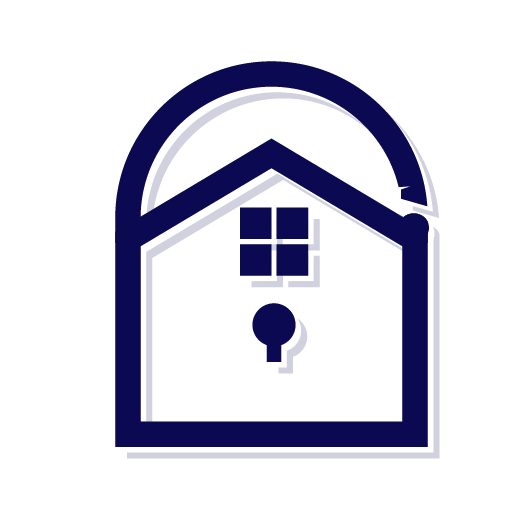Identity theft is the form of a crime whereby someone commits a theft/robbery by stealing your identity. For example, a mask can be made that matches your face in order to deceive a safe that is equipped with facial recognition.
This was just one example of identity theft. However, you’ll be surprised by the numerous ways through which identity theft can be performed and identity theft statistics indicate that it’s a far more serious concern than you think.

Identity theft is no light crime. In fact, identity theft reports have shown that it can drain your accounts and it can make you pretty weak financially.
Therefore, it’s important to educate yourself and others around you about identity theft facts and ways to protect yourself from this crime.
To protect yourself from identity theft, here are a few tips that you can follow:
1. Never leave your documents lying around
Your important documents should never be out in the open. They should always be hidden away in places where they’re hard to reach or don’t fit, for example, your kitchen closet.
Only family members should know where your important documents are, in case of an emergency. These important documents include forms like passports, birth certificates, property ownership documents, and other such documents.
2. Avoid using facial recognition devices to secure lockers and safes
The disadvantages of a facial recognition device include inaccuracy and inability to detect masks and photos. All a person has to do to open a device using facial recognition that you’ve locked is to put a picture of you in front of the recognition site.
Putting up your name is fine but other specific details about where you live and what you do shouldn’t be up on social media. Even if they are, then you should make sure they’re only shared with your close family and friends and aren’t made public.
Hide the Wi-Fi you’ve installed at home so that it doesn’t show itself to those who aren’t specifically searching for it. For more information regarding this, you can contact your service provider and they’ll guide you on how this can be done.
5. Always keep your laptop’s camera covered
Your laptop’s camera can be hacked and used to extract valuable information about you. This information can aid the thief in the process of identity theft. Unfortunately, in recent years, identity theft statistics have drastically increased.
There are many easy ways of covering your laptop’s camera. It’s honestly as simple as putting tape over the camera. It barely requires any effort at all but saves you from a serious threat.
6. Link your online bank accounts to your mobile number
By linking your online bank accounts to your mobile number, you’ll be notified by your bank if any transaction or any other changes are made in your account and you can deal with the situation as soon as possible. This is a very quick way of knowing if you’ve become a victim of identity theft.
It also allows for quick emergency response. Some banks may charge for this service, but at the end of the day, this service can come in pretty handy in case of an identity theft incident.
7. Keep two-tier security on your smartphone
Make sure your smartphone is protected with two-tier security. Stealing of a cell phone is one of the most common means of identity theft. Therefore, you need to make sure that your mobile is well protected.
The thief may eventually find a way to unlock it, but this will buy you some time so you can report your stolen phone and take the necessary steps.
8. Install app in your smartphone to delete data remotely
Many smartphones have an inbuilt application that allows you to remotely remove all data on it if it gets lost. Make sure you know how that works on your smartphone so that if it ever gets lost, you can immediately clear all the data in it.
9. Avoid using public wifi
Never use public Wi-Fi, especially on devices or gadgets that contain valuable information like your bank account passwords and other such information.
It’s an identity theft fact that your phone or any other gadget can be easily hacked by a thief to extract information and then use it to commit a theft. In fact, many identity theft reports reveal that a lot of damage done was due to the use of a common public Wi-Fi by the thief and the victim.
10. Check your bank accounts regularly
Even if you receive notifications on your mobile about any transactions or changes being done in your account, you should still check your bank account statements regularly. This is because sometimes you might dismiss texts from your bank when you’re busy.
11. Don’t just throw away documents that contain your information but aren’t required anymore
This is especially true of all the photocopies of your important documents. Never throw them away whole. Instead, pass them through a shredder first or if you don’t have a shredder at home, cut them up manually into pieces using a pair of scissors before throwing them away.
Avoid trusting your internet pen friends with too much personal information. It’s an identity theft fact that a lot of people using social media to connect with other unknown people do it for the purpose of identity theft.
Never trust anyone on the internet that you don’t know with personal details. Sure, you can talk to people, but don’t share details like your address, name, or any of your social media passwords, no matter how strong you think the bond between you and your pen friend is.
It’s not hard for passwords to get stolen. In fact, social media passwords are more easily stolen than email passwords. Therefore, you should make sure that your social media password isn’t the same as that of your email so that at least the email is saved. Your email is linked to all your bank accounts and therefore, you need to keep its password separate.
14. Always use strong passwords that aren’t predictable
Weak passwords make it easier for identity thieves to hack your accounts. In an identity theft report, it was shown that those individuals that had weak passwords were more prone to become a victim of identity theft.
15. Install a trusted and well-known antivirus software on your laptop
Identity thefts can occur through viruses that are made to infect your laptop. Invest in well-known antivirus software to make sure your laptop or any other device is well-protected against viruses.
There are many antiviruses available online for free but they’re not as effective as the premium versions. This investment may cost you a little initially but it will go a long, long way.
Frequently Asked Questions:
In USA, you can report identity theft to the FTC by completing the online form at IdentityTheft.gov or by calling 877-438-4338.
Identity Theft is one of the fastest growing crimes in the world. The Federal Trade Commission (FTC) estimates that about 9 million Americans have had their identities stolen each year.
Aggravated identity theft is punishable by a mandatory minimum sentence of imprisonment for two years or by imprisonment for five years if it relates to a terrorism offense. At least thus far, the government has rarely prosecuted the five-year terrorism form of the offense.
Identity Spoofing refers to the action of assuming (i.e., taking on) the identity of some other entity (human or non-human) and then using that identity to accomplish a specific goal.
Conclusion:
Now this world in a global village. People from different continents are connected together. We are aware of little things happening thousands of kilometers away.
With these pros there comes some cons. Now people are more prone to identity theft crime than ever before. We share our emotions, pictures of families, places we visit and even food we eat on social media platforms.
We don’t keep our secrets with us. By doing all these things we still want to remain anonymous.
We should share a limited amount of our personal information on social media sites to keep ourselves safe from identity theft crime.



